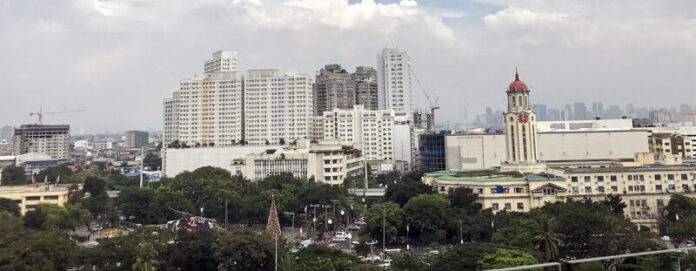-
The Development Budget Coordination Committee kept its target of 6% to 7% GDP growth in 2023 and 6.5% to 8% for 2024 to 2028
-
The targets considered risks posed by geopolitical and trade tensions, possible global economic slowdown, as well as weather disturbances in the country
-
DBCC said it maintained targets as the Philippines’ “high-growth performance” is seen to continue until 2028 after the country surpassed its 2022 growth target
-
Exports and imports growth projections remain at 3% and 4%, respectively, in 2023
-
The average inflation rate assumption for 2023, however, has been increased to 5-7% from the previous 2.5-4.5% given the persisting high prices of food, energy, and transport costs
The Development Budget Coordination Committee (DBCC) kept its target of 6% to 7% GDP growth in 2023 and 6.5% to 8% for 2024 to 2028 on account of expectations the Philippines’ “high-growth performance” will continue and after the country surpassed its 2022 growth target.
GDP grew by 7.6% in 2022, outperforming the DBCC’s growth projections of 6.5% to 7.5%.
The average inflation rate assumption for 2023, however, has been upgraded to 5%-7% from the previous assumption of 2.5%-4.5% given the persisting high prices of food, energy, and transport costs.
DBCC said the government, through the recently-created Inter-Agency Committee on Inflation and Market Outlook, is committed to pursuing an all-of-government approach to continuously implement immediate and medium-term strategies to alleviate inflation, ensure food and energy security, and return to the target range of 2%-4% between 2024 and 2028.
DBCC said it considered risks posed by geopolitical and trade tensions, possible global economic slowdown, as well as weather disturbances in its recent review of the government’s medium-term macroeconomic assumptions, fiscal program, and growth targets for 2023 to 2028.
For this year, exports and imports growth projections remain at 3% and 4%, respectively, following the trend in near-term global demand outlook and trade prospects. These are expected to stabilize at 6% and 8%, respectively, in the medium term.
Services exports are expected to perform better this year and next following recovery of the tourism sector and the continued resilience of the business process outsourcing sector. Services exports growth was adjusted upward from 12% to 17% in 2023 and from 6% to 16% in 2024.
Services imports growth estimates were also upped from 8% to 11% in 2023 and from 8% to 10% in 2024.
DBCC said the trade assumptions reflect gradual normalization of economic activity both globally and domestically.
Revenue projections in the medium term are expected to improve from P3.73 trillion in 2023 to P6.62 trillion in 2028, as proposed tax revenue measures under the Medium-Term Fiscal Framework such as the Passive Income and Financial Intermediary Taxation Act, value-added tax on digital service providers, and excise taxes on single-use plastics and pre-mixed alcohol are expected to be implemented starting 2024.
The DBCC said it will pursue three additional tax reform measures to further increase revenues. These are the imposition of higher excise taxes on sweetened beverages, rationalization of the Motor Vehicle Road User’s Tax, and reforms to the mining fiscal regime. The revenue impact of these measures is expected to kick in starting 2025.
The DBCC, meanwhile, cut assumptions for the price of Dubai crude oil for 2023 to US$70 to $90 per barrel considering the global demand slowdown. The latest forecasts suggest global crude oil prices will continue to decline in 2024 before stabilizing at $60 to $80 per barrel between 2025 and 2028.
Likewise, the peso-dollar exchange rate assumptions for 2023 were adjusted downwards to $53 to $57, and are expected to be maintained at the same level until 2028.
DBCC primarily reviews and approves the macroeconomic targets, revenue projections, borrowing level, aggregate budget level and expenditure priorities, and recommends to the Cabinet and the President the consolidated public sector financial position and the national government fiscal program.
RELATED READ: PH 2023 economic growth projection downscaled





